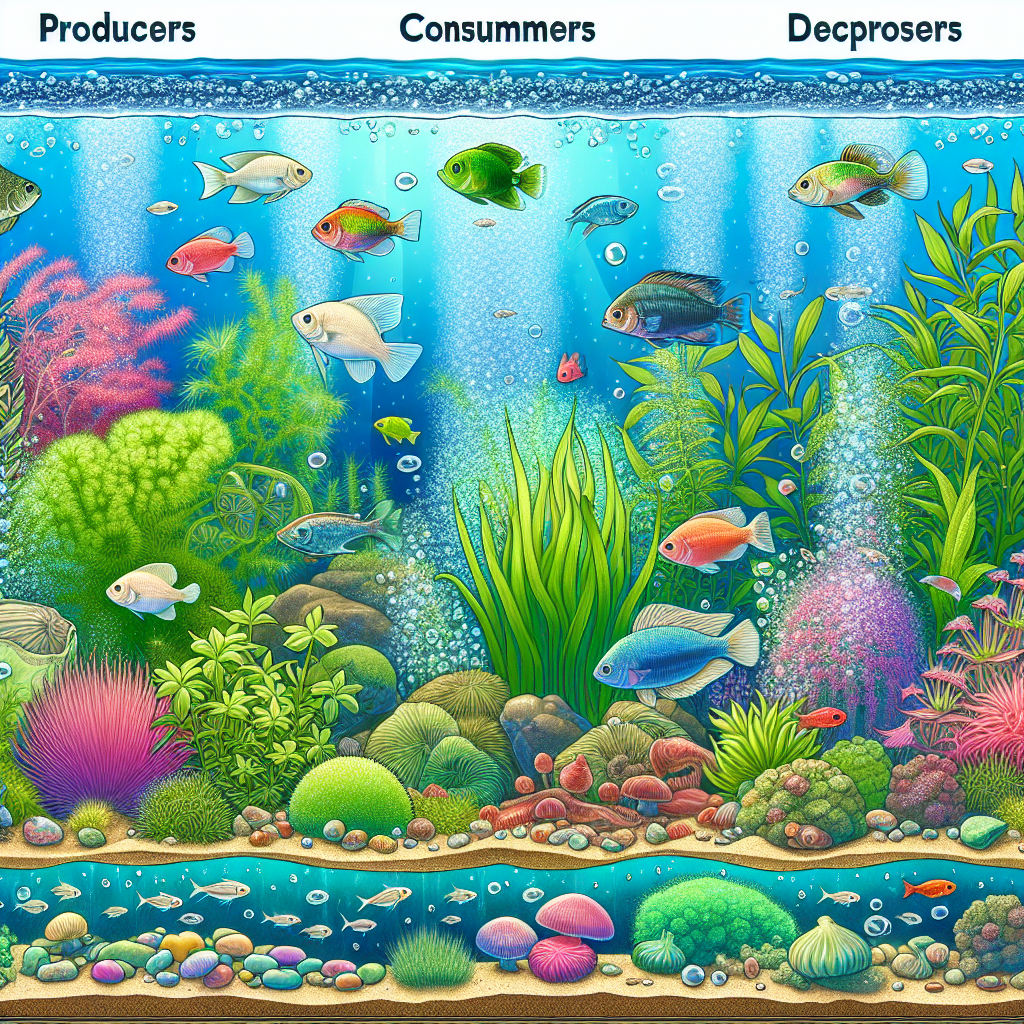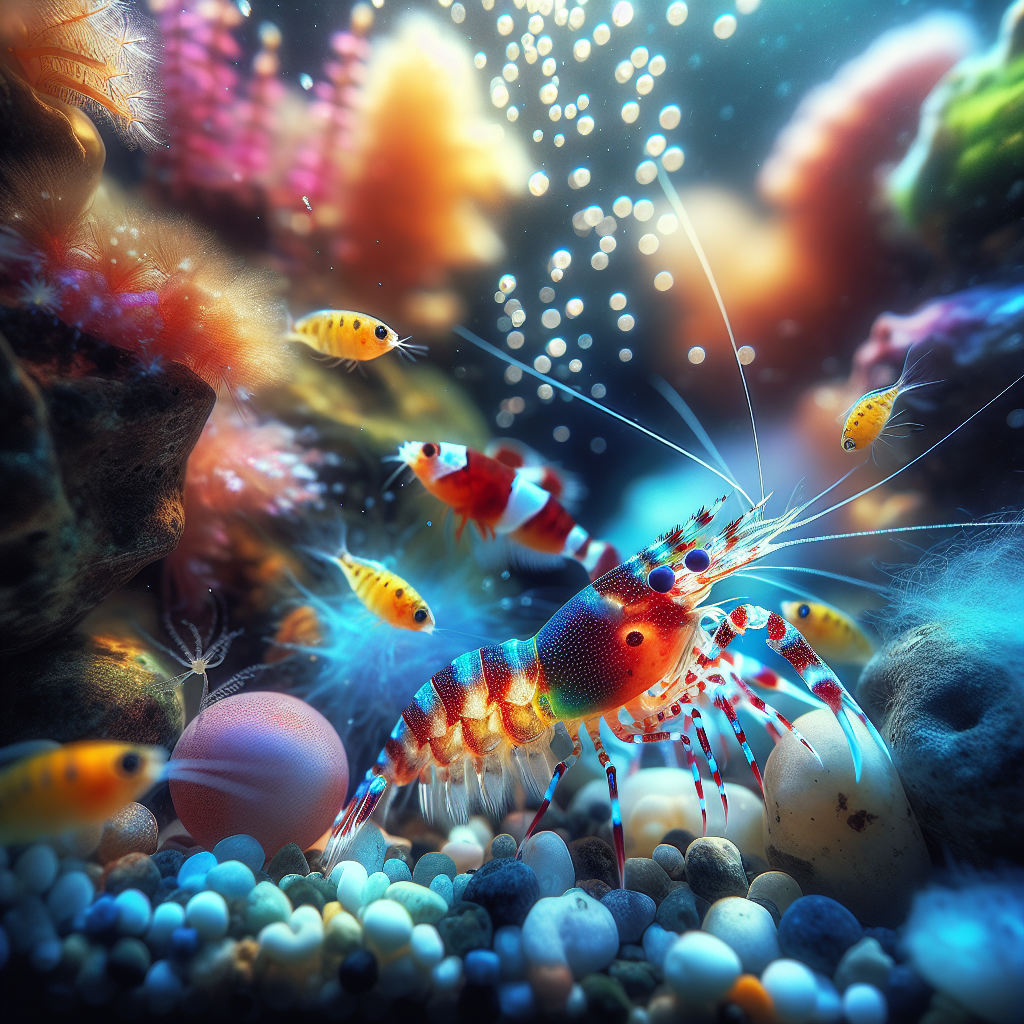Ecosystem Roles Explained
In the vibrant underwater world of an aquarium, every species plays a pivotal role in maintaining the balance of the ecosystem. Fish, plants, and microorganisms form intricate relationships - some cooperative and others competitive. Understanding these dynamics is not just fascinating but essential for creating a healthy aquarium environment. Discover more about aquatic life on our page.
Key Ecosystem Players
In an aquarium ecosystem, various organisms play specific roles, including producers, consumers, and decomposers. Producers, like aquatic plants and algae, harness the sun's energy to create food. In contrast, consumers are the fish and invertebrates that rely on producers and other organisms for sustenance. Lastly, decomposers, such as beneficial bacteria and certain fungi, break down waste, returning vital nutrients to the ecosystem. Explore more about the ecosystems and habitats of aquatic life.

Aquatic Food Webs
The food web illustrates who eats whom in the aquatic world. It's more complex than a food chain because it shows the network of multiple connections. In an aquarium, small herbivorous fish feed on plants or algae, while larger, carnivorous fish may prey on the smaller ones. The waste products and remains are broken down by decomposers, which in turn support the producers.
Symbiotic Relationships
Symbiosis refers to a close and long-term biological interaction between two different biological organisms. There are three main types: mutualism, commensalism, and parasitism. Mutualism benefits both parties, like clownfish and anemones. Commensalism benefits one without affecting the other, such as barnacles on a whale or snails on aquarium glass. Parasitism benefits one at the expense of the other, like certain worms on fish. Gain further insights into these relations from an external article on Symbiosis.
Cycling and Balance
Starting a new aquarium involves a process known as cycling. It's the establishment of beneficial bacteria that convert toxic ammonia, produced by fish waste, into less harmful nitrites and then nitrates. This biological filtration is crucial for a healthy aquarium ecosystem and involves an intricate balance between all living organisms.
Interspecies Interactions
Interspecies interactions go beyond predation and symbiosis. There's competition for resources, territorial disputes, and even the cleaning services some fish and invertebrates provide for others. Cleaner shrimp, for example, will set up "cleaning stations" where they remove parasites and dead tissue from larger fish.

Creating a Balanced Aquarium
To create a balanced aquarium, it’s important to understand the roles and interactions within the ecosystem. Overstocking can lead to increased waste and depleted oxygen levels, causing stress among the inhabitants. Conversely, a well-stocked tank with a mix of species can simulate a natural ecosystem, promoting healthier fish and more efficient biological cycling.
To achieve this balance, aquarium hobbyists must research the species they wish to keep, understanding their specific needs and how they fit into the ecosystem. Here are some recommended products to get started on creating a well-balanced aquarium setup:
Maintaining Ecosystem Health
A balanced aquarium requires regular maintenance. Proper feeding, routine water changes, and monitoring water quality are all part of maintaining a healthy ecosystem. Monitoring tools can help keep track of parameters like pH, ammonia, nitrite, and nitrate levels. Learn more about maintenance and care for your aquarium.
Learning Through Observation
Aquariums offer more than just aesthetic appeal; they're living laboratories. Observing behaviors, interactions, and the overall health of your aquatic pets can teach you a great deal about ecology, responsibility, and the joy of nurturing a slice of the natural world.
In conclusion, the role each species plays in an aquarium is akin to a character in a story - each one is significant to the plot, and their interactions are what make the narrative compelling. It’s not just about caring for fish; it's about stewarding an entire ecosystem.